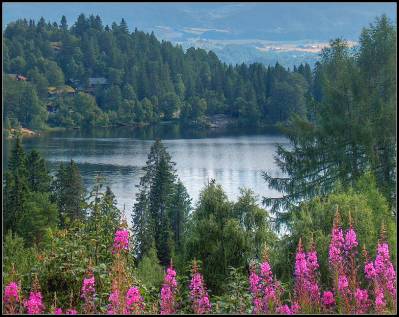Холдор Вулқоннинг ижодий саҳифаси.
Меню сайта
Разделы новостей
| Ҳикоялар [8] | Ҳажвиялар [65] |
| Мажмуалар [12] | Таржималар [10] |
| Видео [6] | Шоир ҳақида [24] |
| Шеърлар [108] | Асарлар [25] |
| Шоир дўстларининг ижодидан [37] | Қиссалар [26] |
| Оламда нима гап? [55] |
Форма входа
Поиск
Друзья сайта
Наш опрос

2. Chapter of the powest "lights far away" Separation | 18:53 |
|
Holdor Volkano  2. Chapter of the powest "Lights far away" SEPARATION
If I didn’t write of my long-suffering mother in this section, it would be as if I were neglecting a great duty. As my poor mother was bedridden for a long time, my father had intended to marry other women. As my dear grandfather Mirjalol and my dear grandmother Maf’firat have said, they loaded my mother’s luggage up on a donkey wagon, wrapped my ill mother up in a quilt, and sent me to lift her up. I was around five years old at this time. After a short time my father married, and jealousy completely wore my mother out. My blessed aunt would say "Let children raise themselves” and to my father say, "Hey, raise your child!”, as she was sent to the so’ri tangled in swaddling clothes. Having been informed of these events my uncle, that is, my father’s younger brother Fazil, took me. "Take, consider it yourself,” said Mirjalol to my elders.
As I bounced back and forth between them like a tennis ball, my grandfather Abdusalom heard was what happening and scolded my father and uncle, saying he would take care of it himself. My aunt Patila who was divorced and had no children began to raise me. When my aunt left to marry a man named Ismon aka, my father’s second wife, my step-mother, who was childless, began to bring me up as if I were her own child. I was around seven years old at this time.
And so my little brother and I began to grow up with our step-mother. I slowly made my way through school. At the beginning of school a friend at the time named Erkin was raising cattle along the shores of the Qoradaryo. I still remember mosquitoes would fly near their tails, which would wave indolently, carefree, the cows spouting horns overnight, myna birds looking them over, moving en masse down the river, loud noises urging them on towards the shores, escavators into the far distance, the rice fields sparkling like the glass of a mirror, the far «Zilolmas», or "Green bridge”, through which the train would pass by, shrieking, the far side of the river bright green in the aerodrom where the AN-20 airplanes would fly overhead. Erkin and I were two untamed savages, building a shallow ford of rocks in the river, the thickets in sight far in the distance, high and imposing cliffs casting the waves of the river. Sometimes my mother would enter my dreams in this heavenly part of my most wonderful homeland.
I long for this place, to return to my homeland. But in this I had no choice. I recently spoke with my father by telephone from Bishkek.
"Salom, how’s it going?” asked my father, inquiring as to the situation. "What are you doing? Why haven’t you come?” he added. "Dada, I can’t come. If I come they will jail me,” I said.
"Why would they jail you? What’d you do, kill someone?” said my father. I had said it was "for speaking the truth”, a sentiment that left a bitter taste in my father, difficult to swallow, and the tears that rolled down my face stung my eyes like poison.
"You can’t raise your children as an outcast in a foreign land. Is that not the truth, my child?” asked my father. He also began to cry. After remaining silent for a bit he spoke again. "OK, fine, take care wherever you go. They pray for you from afar.
OK, I may write about this afterwards. Now I will detail a few things from my mother’s death. It was the end of summer. Fruits were blossoming near the shores where the children were herding cattle.
At this time I saw a guy riding a bike past the dam made of dirt in the rode. As he approached I saw that it was my uncle. He came up to me on the bike. Looking at me, he said: "Go, I’m here to take you. Your mother’s time has come.” I blew him off. "No, I’m herding the cattle, I can’t do it, I don’t have the time,” I said. My uncle blanched at these words and took me home, leaving my friends to herd the cattle. At home my mother’s sister Fotima was waiting with my grandmother. With my uncle and grandmother and little brother we attached the cart to the car. My grandmother stroked my head and wept. It became obvious, looking at this situation, that my poor mother had truly died. They took us to the house where my mother had been living.
My brother was filled with sadness as he wrapped my mother’s body in the embrace of the quilt. I began to feel afraid. Before the funeral my mother was shrouded, my uncles surrounding the tobut, my aunts, grandmothers began weeping. Despite this my uncle, who was a smalltime gambler, brought out some white sugar. "Hey, why did my uncle bring out sugar when everyone is crying?” I wondered, and said, "Give the sugar to me.” I seemed to have made a mistake. "I do not shrivel like a maxsi in the face of death”, my uncle Muhammad turned pale and said this was not sugar, these were teeth. In my youth my devils came quickly. Despite myself I began to laugh, my shoulders shaking.
| |
| Категория: Қиссалар | Просмотров: 1164 | Добавил: valfajr | |
| Всего комментариев: 0 | |

